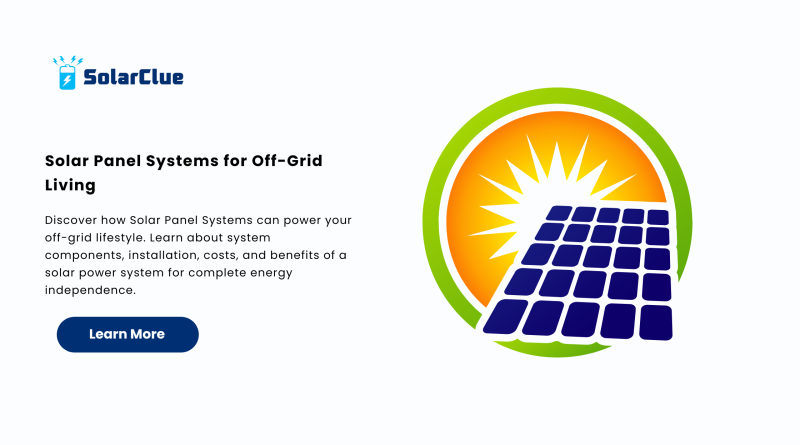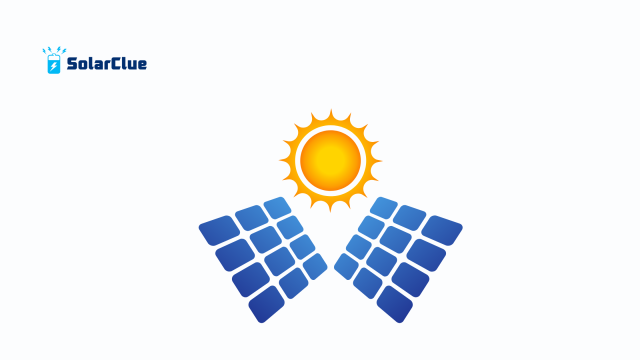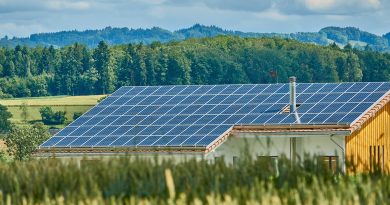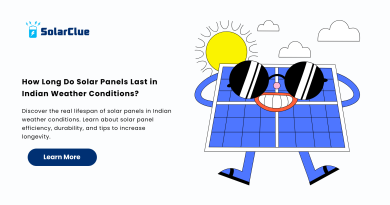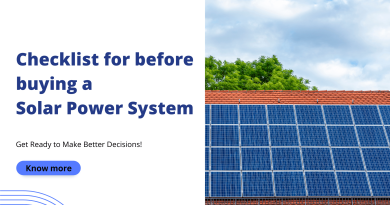Solar Panel Systems for Off-Grid Living
Living off-grid is no longer just a dream for adventurers or remote homeowners—it’s becoming a lifestyle choice for those seeking independence, sustainability, and freedom from rising electricity costs. A solar panel system is at the heart of this transformation, providing clean, renewable power for homes, cabins, RVs, and remote properties. If you’ve ever imagined living without relying on the grid, understanding how solar power systems work is the first step toward making it a reality.
Table of Contents
- 1 Understanding Off-Grid Solar Power
- 2 Components of an Off-Grid Solar Panel System
- 3 Benefits of Off-Grid Solar Power
- 4 Sizing Your Off-Grid Solar Panel System
- 5 Installation Tips for Off-Grid Solar Systems
- 6 Maintenance of Solar Panel Systems
- 7
- 8 Costs of Going Off-Grid with Solar Power
- 9 Common Myths About Off-Grid Solar Power
- 10 Future of Off-Grid Solar Power
- 11 FAQs
Understanding Off-Grid Solar Power
An off-grid solar power system is designed to operate independently from the utility grid. Unlike grid-tied systems, it stores the electricity produced by the solar panels in batteries, ensuring you have power even at night or during cloudy days. This setup is ideal for rural areas, remote cabins, farms, or anyone looking for true energy independence.
Components of an Off-Grid Solar Panel System
A complete solar panel system for off-grid living consists of several key components that work together to generate, store, and deliver electricity:
1. Solar Panels
These capture sunlight and convert it into electricity through photovoltaic cells. High-efficiency solar panels maximize power generation even in limited space.
2. Charge Controller
The charge controller regulates the power from the solar panel to the battery bank, preventing overcharging and prolonging battery life.
3. Battery Bank
Essential for storing the energy generated during the day for use at night or during bad weather. Options include lead-acid and lithium-ion batteries, with lithium offering longer lifespans and better efficiency.
4. Inverter
Converts the DC electricity stored in batteries into AC electricity, which is used by most household appliances.
5. Backup Generator (Optional)
In areas with long cloudy seasons, a generator can provide backup power when solar output is low.
Benefits of Off-Grid Solar Power
-
Energy Independence – No reliance on power companies or grid outages.
-
Eco-Friendly – Zero emissions during operation, reducing your carbon footprint.
-
Cost Savings – Once installed, your solar power system drastically cuts or eliminates your electricity bills.
-
Scalability – You can expand your solar panel system as your energy needs grow.
Sizing Your Off-Grid Solar Panel System
Choosing the right size solar power system is crucial. Start by calculating your daily energy usage in kilowatt-hours (kWh). Factor in:
-
The total wattage of appliances you’ll run.
-
How many hours each device is used per day.
-
Seasonal sunlight variations in your area.
Once you know your daily power needs, you can determine the number of solar panels and the battery capacity required.
Installation Tips for Off-Grid Solar Systems
-
Choose the Right Location – Install solar panels where they receive maximum sunlight throughout the year.
-
Ensure Proper Tilt and Orientation – Align the panels toward the sun at the optimal angle for your location.
-
Protect Against Shading – Avoid trees, buildings, or other obstacles that block sunlight.
-
Hire Professionals for Complex Systems – While DIY is possible, professional installation ensures safety and efficiency.
Maintenance of Solar Panel Systems
Off-grid solar panel systems require regular maintenance for optimal performance:
-
Clean panels every few months to remove dust and debris.
-
Check battery health and electrolyte levels (for lead-acid batteries).
-
Inspect wiring and connections for wear or corrosion.
Costs of Going Off-Grid with Solar Power
The cost of an off-grid solar power system depends on its size, battery type, and installation complexity. On average, small cabin systems may start at ₹2–3 lakhs, while full home setups can go beyond ₹8–10 lakhs. Although the upfront investment is significant, the long-term savings on electricity and the independence gained make it worthwhile.
Common Myths About Off-Grid Solar Power
-
Myth: Off-grid means no electricity during bad weather.
Truth: With proper battery storage and backup systems, you’ll have power even in cloudy conditions. -
Myth: Off-grid solar is too expensive for most people.
Truth: Costs have dropped significantly in recent years, and financing options make it accessible. -
Myth: Solar panels require constant maintenance.
Truth: Apart from occasional cleaning and checks, solar panel systems are low-maintenance.
Future of Off-Grid Solar Power
Technological advances like high-capacity lithium batteries, smart inverters, and hybrid systems are making off-grid solar power systems more efficient and affordable. As renewable energy becomes mainstream, living off-grid will no longer be a niche choice—it will be a smart, sustainable lifestyle.
FAQs
Q1. How many solar panels do I need for off-grid living?
The number depends on your energy usage and sunlight availability. For a small home, you may need 10–20 panels, while a cabin may require just 4–6.
Q2. Can I go completely off-grid with solar power?
Yes, with the right battery storage and backup systems, you can live entirely without grid electricity.
Q3. How long do off-grid solar panel systems last?
Solar panels typically last 25–30 years, while batteries may need replacement every 5–15 years, depending on type and usage.
Q4. Is off-grid solar worth the investment?
Yes, especially if you live in a remote location or want complete energy independence.
Q5. What happens if my solar power system produces more electricity than I use?
Excess power is stored in batteries, and once full, it’s either unused or can be diverted to optional loads like heating water.
Switching to Solar Panel Systems for off-grid living is not just about energy—it’s about freedom, self-reliance, and sustainability. If you’re ready to take the leap into an independent lifestyle, start by exploring your options and designing the perfect solar power system for your needs. Visit solarclue.com or blog.solarclue.com to get started on your off-grid journey today.

